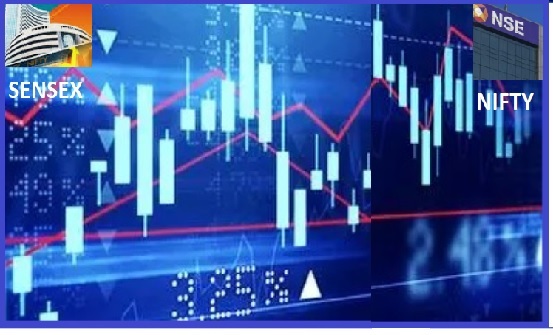
(Photo : BTIN)
Nifty
- The Indian stock market experienced a shift due to tensions between Ukraine and Russia.
- Despite the downturn, sectors like media, auto, IT, and financial services saw buying.
- The volatility index surged by 3.26 per cent, indicating increased market volatility.
- The ongoing conflict between Russia and Ukraine is likely to impact the Indian stock market.
The Indian stock market, which had been riding a wave of optimism, experienced a sudden shift in momentum on Tuesday. The market, which had been on a super rally, lost steam towards the end of the day due to heavy profit-booking. This change in market dynamics was triggered by the emergence of fresh tensions between Ukraine and Russia.
The Sensex, after a significant intra-day rise of more than 1,100 points, closed with a gain of 239 points. This reversal was a direct result of reports about Ukraine's armed forces launching their first ATACMS missile strike on Russian border territory. The Kremlin's threat of retaliation with dire consequences added to the market's volatility.
Sectoral Performance Amid Market Volatility
Despite the overall market downturn, the media sector saw heavy buying, with Nifty Media registering a gain of 2.45 per cent. The Sensex closed at 77,578.38, gaining 239.37 points or 0.31 per cent, while the Nifty closed at 23,518.50, with a gain of 64.70 points or 0.28 per cent. The Nifty Bank rose by 262.70 points or 0.52 per cent to 50,626.50. The Nifty Midcap 100 index closed at 54,548.25 at the end of trading, gaining 503.45 points or 0.93 per cent. The Nifty Small cap 100 index closed at 17,677.35 after gaining 170.10 points or 0.97 per cent.
In addition to the media sector, buying was also observed in auto, IT, financial services, pharma, FMCG, realty, and private bank sectors. In the Sensex pack, M&M, HDFC Bank, Tech Mahindra, Titan, Tata Motors, Sun Pharma, Ultra Tech Cement, Adani Ports, Power Grid, Infosys, Axis Bank, and TCS were the top gainers. On the other hand, Reliance, SBI, Tata Steel, Bajaj Finserv, Maruti, and L&T were the top losers.
Geopolitical Tensions and Market Volatility
On the Bombay Stock Exchange (BSE), 2,326 stocks traded in green and 1,637 stocks in red, with no change in 96 stocks. The volatility index India (VIX) surged by 3.26 per cent to 15.66, indicating a rise in market volatility. According to Jatin Trivedi of LKP Securities, the Nifty remained volatile throughout the session due to a sudden spike in geopolitical tensions between Russia and Ukraine. This caused the index to fall below its 200-day moving average (DMA) once again. Experts have suggested that the re-intensification of war between Russia and Ukraine has created a selling situation in the market, increasing pressure on the rupee.
Foreign institutional investors (FIIs) sold equities worth Rs 1,403 crore on November 18, while domestic institutional investors bought equities worth Rs 2,330 crore on the same day. Historically, geopolitical tensions have always had a significant impact on global financial markets. For instance, the Israel-Hamas war had significant implications for the Indian economy, a net importer of crude oil.
The escalation of the conflict led to a spike in crude oil prices, causing selling pressure in the market. Similarly, the ongoing conflict between Russia and Ukraine is likely to have a similar impact on the Indian stock market.
In conclusion, the recent performance of the Indian stock market is a clear reflection of the impact of geopolitical tensions on global financial markets. As the situation between Russia and Ukraine continues to evolve, investors and market watchers will be keeping a close eye on developments and their potential impact on the market. The market's response to these geopolitical events underscores the interconnectedness of global economies and the influence of international events on domestic markets.









